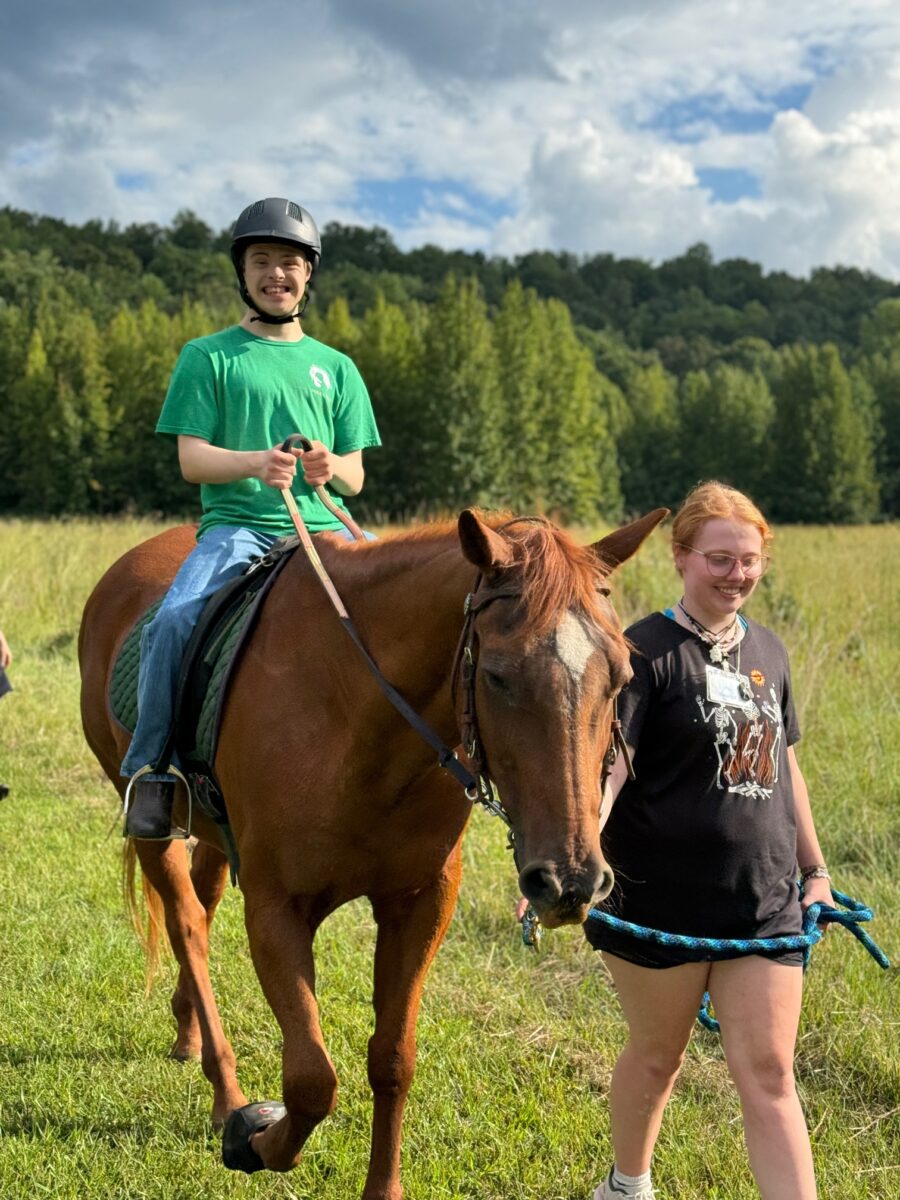
Kathleen Claybrook receives a lot of fan mail. Her email inbox is filled with messages from parents praising Special Equestrians for being “life-giving” and “life-changing.”
Special Equestrians, for which Claybrook has served as executive director for 32 years, is an Alabama-based nonprofit organization that seeks to enrich the lives of people with physical, cognitive, or emotional challenges through a relationship with a horse.
“The motion of the horse is almost identical to that of a person,” Claybrook explained. “So, by virtue of just even sitting on the horse, they are getting benefits.”
Equine-assisted therapy can help those with physical limitations build strength, balance, flexibility, and coordination, she added.
A letter from a parent of a child with cerebral palsy shared that, before coming to Special Equestrians, her son could not walk independently. Now, not only is he walking on his own, but he is working on running and jumping, too.
“For the person with a cognitive disability, it improves their cognitive and motor planning skills,” Claybrook added.
But the benefits don’t stop there. Special Equestrians gives riders a sense of community and belonging and boosts their confidence.
“The social atmosphere is awesome because the volunteers are so fabulous and encouraging,” Claybrook said. “It’s like this cheering section and it’s so much fun out here.”
One parent of a child diagnosed with ADHD and autism says the program has even given her daughter a sense of self. She tells anyone who asks what sport she plays that she rides horses. She calls herself a cowgirl and wears a bandana around her neck to school every day. Special Equestrians helps children with disabilities rediscover the joy of being a kid.
Any person age 4 or older with a physical, mental, developmental, or emotional disability is eligible for the organization’s equine therapy program but must provide a physician’s statement and be approved by the Special Equestrians team. A horse handler and two sidewalkers assist beginning riders, who slowly work their way up to more independent rides, if and when it’s safe to do so.
More physically challenged riders can try MiraColt, a device specifically designed to mimic the movement of a draft horse. This program provides an opportunity for these riders to benefit from the movement of a horse in a safe and controlled environment with one-on-one physical instruction tailored to their needs.
Special Equestrians also offers a Horsemanship program, which is an adapted class for participants who wish to learn more about caring for, leading, and the behavior of their horse but may be unable to ride due to a condition or disability that is not appropriate for mounted activities.
Sessions at Special Equestrians cost as little as $30, and scholarships are provided so that no one is turned away due to financial difficulties. This is made possible thanks to contributions from groups like the Remy Fund for Pets and Animal Services at the Community Foundation of Greater Birmingham that awards grants to nonprofit organizations that provide assistance to traditional companion animals (dogs, cats, and horses) and the humans they touch. Special Equestrians received $5,500 from the Remy Fund’s 2025 grant cycle to provide comprehensive care for horses in their animal-assisted equine therapy program.
It costs $5,500 per horse to care for the animals of the organization’s equine therapy program. Without contributions from groups like the Remy Fund and volunteers who feed the horses to cut down on staffing costs, Special Equestrians would have to charge riders around $315 per lesson.
“It’s really important for us to have funding from people like the Remy Fund because without it, we couldn’t possibly serve our riders,” Claybrook said.
Special Equestrians is proudly accredited through the Professional Association for Therapeutic Horsemanship (PATH) International.
“We have to go through 100 standards that we have to meet in order to be accredited, so we really take it seriously,” Claybrook said.
Special Equestrians, located in Indian Springs, has operated since 1985. Claybrook first joined the team in 1987 as a volunteer.
“I fell in love the first day,” she recalled. Six years later, she was at the helm of the organization.
“I tell people all the time I haven’t worked a day since I started here because I just love it,” Claybrook said. “I love working with our riders. And if you do have a bad day, you go out and pet a horse, and it gets rid of all the negativity.”
Learn more about Special Equestrians at www.specialequest.org.